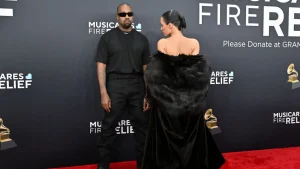
© Soumyabrata Roy/NurPhoto
For several years, getting selected for one of Spotify’s flagship playlists was a major breakthrough opportunity for emerging artists. Prominent playlists like RapCaviar and Today’s Top Hits became influencers in their own right, breaking new acts and rocketing songs up the charts. However, things appear to be changing as Spotify shifts its focus to algorithmic recommendations over human curation.

In the late 2010s, playlists like RapCaviar attained outsized power in the music industry. Securing a spot on one of these playlists was akin to receiving the coveted stamp of approval that could turn a relatively unknown artist into a household name overnight. Rapper Cardi B credits her 2017 breakout hit “Bodak Yellow” reaching #3 on the Billboard Hot 100 charts due in large part to exposure on RapCaviar. Other genres saw similar phenomena, with major labels regularly courting playlist editors in hopes of breaking new records.

Yet over the past couple years, the influence of these curated playlists seems to be on the decline. Data from record labels shows streams from flagship playlists like RapCaviar and dance playlist Mint dropping 30-60% compared to previous years. Playlists that used to consistently drive millions of streams now deliver a fraction of that impact. Individual playlist editors have also taken a step back, with Spotify instructing them not to claim ownership over lists and gradually shifting to more anonymity.

This fading influence coincides with Spotify’s growing emphasis on algorithmic personalization over human-picked selections. Features like Daily Mixes and the AI DJ function are designed to constantly evolve constantly based on listener habits. The company has also instituted a standardized pitching process for getting songs added to playlists, ostensibly making the process more “merit-based.” However, critics argue this lesser reliance on editorial expertise has diminished playlists’ cultural cachet.

As a result, record labels, artists, and managers are adjusting how they promote new releases. While playlist placement remains desirable, it no longer holds the same make-or-break power it once did. Success increasingly depends on a multifaceted approach, whether that’s driving engagement on TikTok, courting influencers on other platforms, or allowing algorithms and listeners to organically discover tracks. For Spotify, algorithmic personalization ensures it maintains control over the discovery experience in a rapidly changing industry.







1 thought on “The Quiet Demise of Spotify’s Power Playlists: How Algorithms Usurped Editorial Influence in Music Discovery”